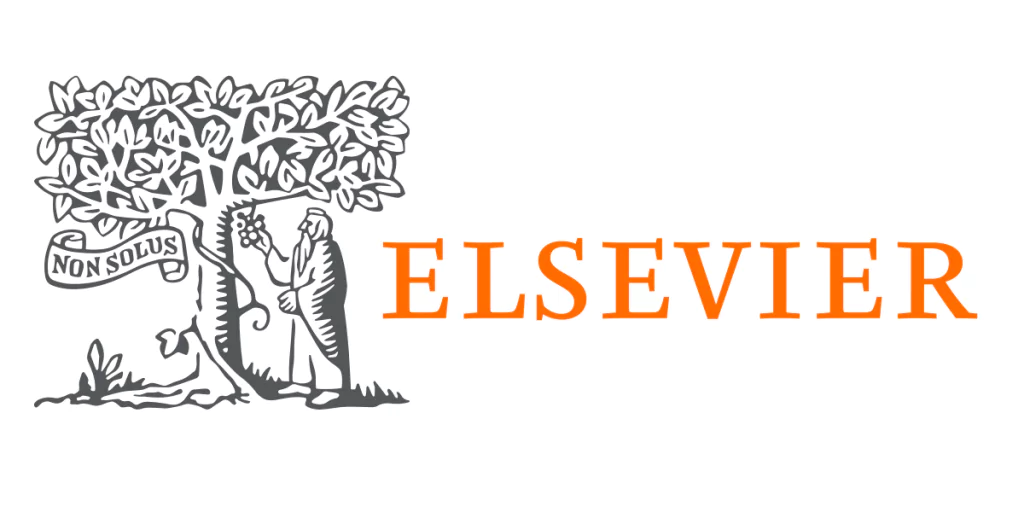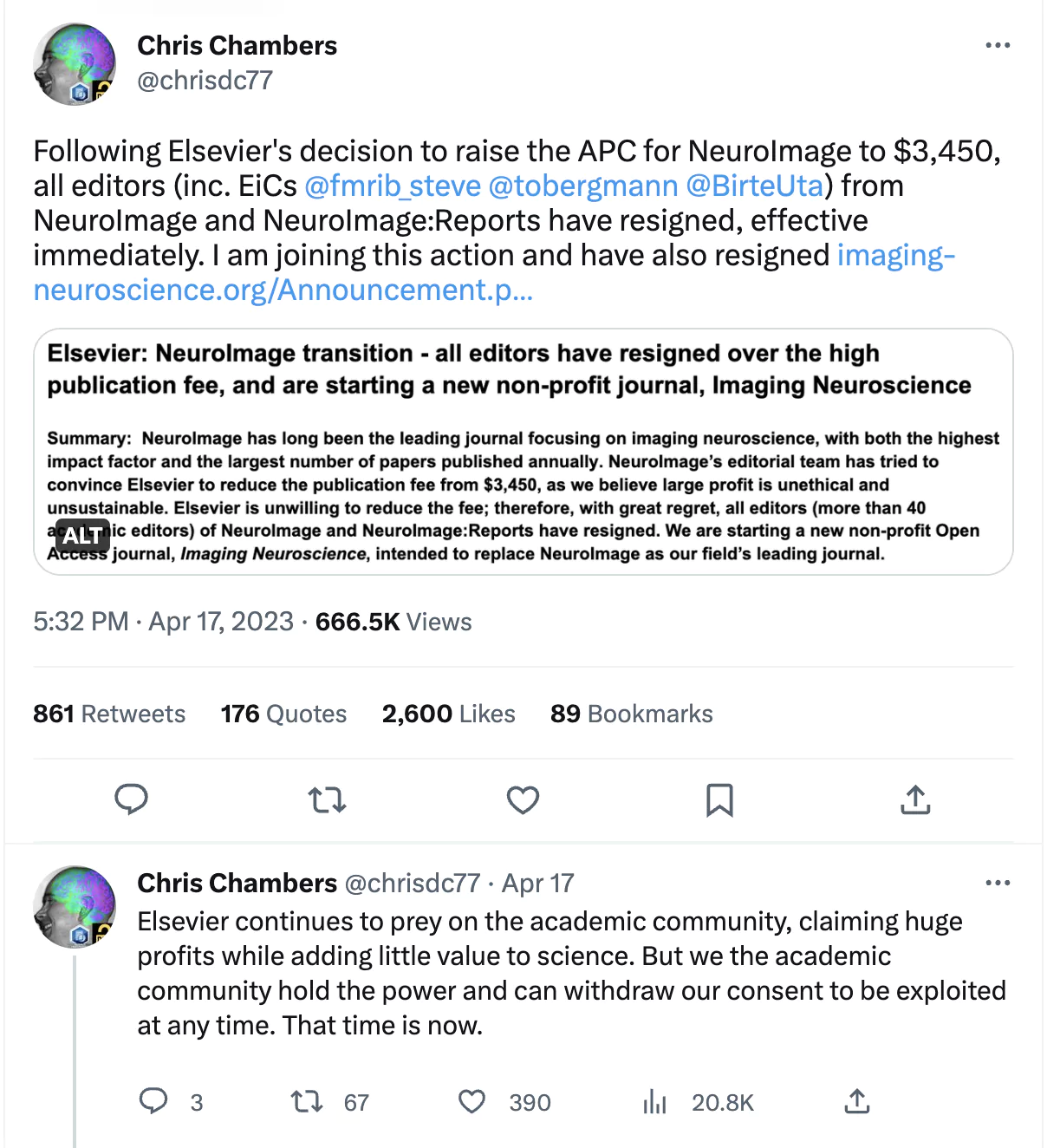In a collective move, more than 40 distinguished scientists, including professors from Oxford University, King’s College London, and Cardiff University, have stepped down from the editorial board of Neuroimage, a preeminent journal in brain-imaging research, as reported by The Guardian.

✅ AI Essay Writer ✅ AI Detector ✅ Plagchecker ✅ Paraphraser
✅ Summarizer ✅ Citation Generator

The mass resignation comes as a response to the steep publication fees imposed by academic publishing giant Elsevier, whose profit margins surpass those of Apple, Google, and Amazon, eliciting widespread disapproval among academics.
Neuroimage has transitioned to an “open access” model, no longer requiring a subscription. However, it charges scholars over £2,700 to publish a research paper. The departing editors contend that this fee is “unethical” and bears no correlation to the actual expenses involved. Professor Chris Chambers of Cardiff University, a member of the resigning team, criticized Elsevier for “reaping enormous profits while contributing minimally to science.”
As an alternative, the group of departing scientists is launching a nonprofit open-access journal, encouraging their peers to submit papers to the new platform. Stephen Smith, a biomedical engineering professor at Oxford University and former editor-in-chief at Neuroimage, cautioned publishers that the breaking point has been reached and that the prestige of the journal will accompany the editors to their new venture.
Elsevier, a Netherlands-based company responsible for publishing 25% of global scientific papers, recorded a 10% revenue increase last year, reaching £2.9 billion. A company spokesperson defended their article publishing charges, claiming they are “below the market average relative to quality,” and expressed regret over the mass departure.
In addition to the publication fee issue, university libraries are voicing discontent regarding the exorbitant costs of online textbooks, which often substantially exceed the prices of their print equivalents. Manchester University cited instances where popular textbooks had print versions priced at £75 while three-user ebook licenses reached £975. This digital cost disparity is reportedly fostering a divide between affluent and less-resourced institutions.
In conclusion, the mass resignation of over 40 leading scientists from the editorial board of Neuroimage highlights the growing discontent within the academic community regarding excessive publication fees and profit margins of publishers like Elsevier. The establishment of a nonprofit open-access journal by the resigning team signals a potential shift in the academic publishing landscape, with researchers seeking more ethical and affordable alternatives.
Furthermore, the issue of high costs for online textbooks adds to the mounting frustration faced by university libraries and educational institutions. This digital divide between well-funded and less-resourced institutions is a pressing concern that calls for a reevaluation of pricing strategies in the academic publishing sector. It remains to be seen whether the collective actions of these distinguished scientists will prompt significant change within the industry, ultimately fostering a more equitable and accessible academic environment.
Related stories:
Edtech Providers Must Prove Efficacy Amidst Surging Market Growth
Self-Publishing as an Alternative to Standard Press
Follow us on Reddit for more insights and updates.






Comments (0)
Welcome to A*Help comments!
We’re all about debate and discussion at A*Help.
We value the diverse opinions of users, so you may find points of view that you don’t agree with. And that’s cool. However, there are certain things we’re not OK with: attempts to manipulate our data in any way, for example, or the posting of discriminative, offensive, hateful, or disparaging material.